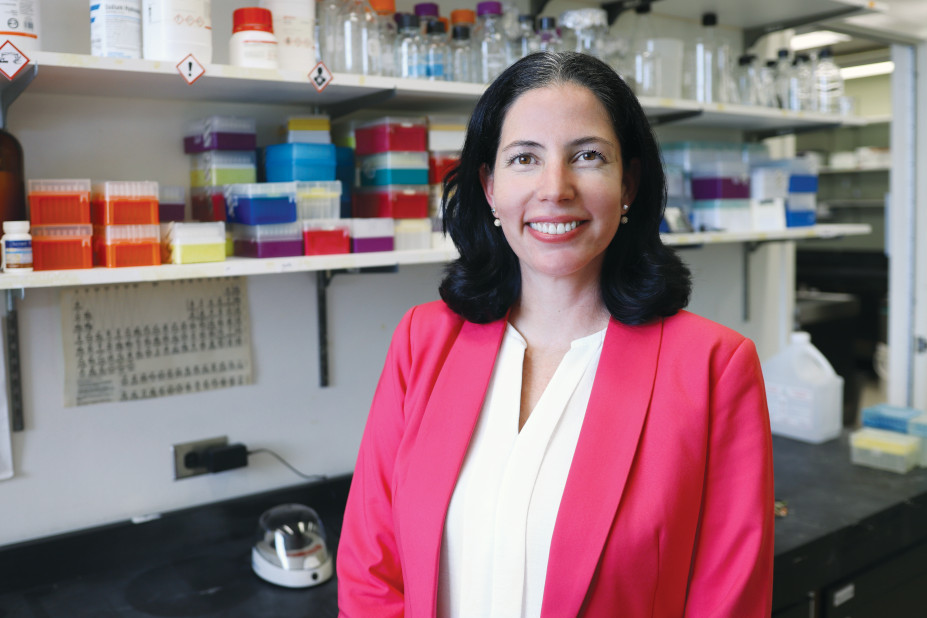
Listening to Experience
When Dr. Zulma Rueda was studying tuberculosis (TB) transmission in Colombian prisons as part of her PhD research 14 years ago, some prisoners approached her.
They wanted to help, so she began by teaching them about TB and respiratory infections. Then she and the prisoners co-developed a community-based surveillance program that aimed to identify inmates with TB symptoms.
She also started a support group for prisoners with the disease. Together, they co-developed educational videos, materials and even a song.
“This experience made me understand the power of involving people with lived experience in research,” says Rueda, who grew up in Colombia. “I listened to them. I learned from them. It changed my life and shaped how I do research today.”
Rueda, who is both a medical doctor and an epidemiologist, was educated at Colombia’s University of Antioquia. She has long-standing collaborative connections with UM scientists because she participated as a PhD student in the International Infectious Disease and Global Health Training Program, which is based at UM and has multiple partners in Colombia.
In 2021, she joined UM as an associate professor of medical microbiology and infectious diseases and Canada Research Chair in sexually transmitted infection — resistance and control.
Her Manitoba research focuses on pneumonia, TB, HIV and sexually transmitted and blood-borne infections (STBBIs).
She works with marginalized populations, studying, for example, why multiple infections co-occur in many patients and whether biomarkers in blood could hold the key to on-the-spot diagnostic testing.
Before starting her HIV research, Rueda and her team brought together more than a dozen Winnipeg community members with lived experience — including people living with HIV, people who used drugs and people without housing — and trained them as co-researchers.
“One of the main lessons they taught me is the beauty of delivering messages simply. As researchers, we love elaborate explanations, when actually people prefer simple, plain, clear and concrete messages.”
The community members co-developed calls to action, including messages for Manitoba health-care providers such as: “When testing for one STBBI, test for all.”
Rueda’s research has revealed the overlapping social conditions that contribute to HIV and sexually transmitted co-infections in Manitoba. Some of these findings appear in a newly published article in The Lancet Regional Health – Americas.
She has found that the province has a much higher rate of new HIV diagnoses in women, in people who inject drugs, and in people without housing than Canada as a whole, where new cases are more prevalent in men who have sex with men. “Manitoba requires different strategies,” she says.
Rueda received a 2023 Terry G. Falconer Memorial Rh Institute Foundation Emerging Researcher Award, recognizing her exceptional innovation, leadership and promise in her field.
She and her team are now partnering with Winnipeg’s Siloam Mission to study the use of dual rapid testing for HIV and syphilis to connect people with care more quickly.
Rueda is strongly committed to research that translates into practical improvements in care for underserved communities.
“I refuse to sit in a chair and say, ‘Wow, what a cool finding’ or ‘What a sad finding,’” she says. “We must work closely with people who are disproportionately affected by infectious diseases to change health policy.”






